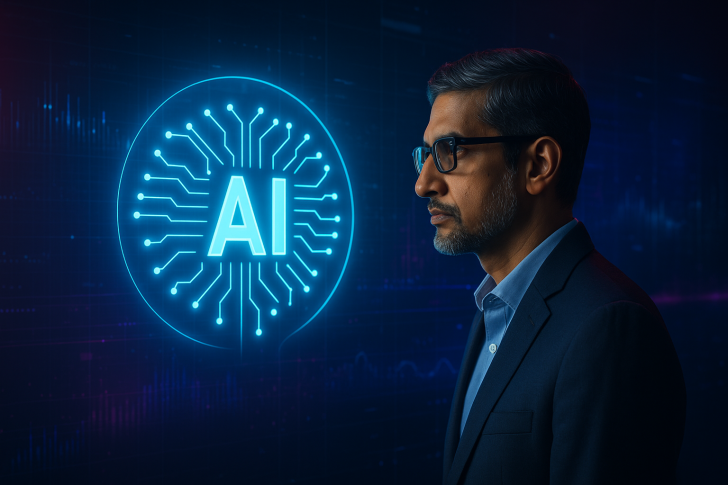⬤ Google's GOOGL caught fresh attention after CEO Sundar Pichai doubled down on his belief that artificial intelligence is "the most profound technology humanity is ever working on." He's pushing the message that society needs to adapt fast as AI kicks structural change into overdrive. Here's the thing—this isn't just corporate speak. The substance behind what Pichai's saying points to something bigger: a fundamental shift in how power, coordination, and decision-making work in an AI-driven world. Right now, global tech companies are racing to scale their AI capabilities across infrastructure, models, and enterprise tools.
⬤ Let's be real about what makes AI different. Unlike previous tech revolutions, AI can model, update, and modify human coordination faster than traditional institutions can even respond. For over 200 years, power has flowed through capital, regulation, scale, and established institutions. AI flips that hierarchy on its head. Instead, influence moves toward gradient descent, iteration speed, data density, and model coherence. The shift isn't about individuals adapting—it's institutions themselves that need to keep up with systems capable of thinking and updating orders of magnitude faster than human organizations can manage.
⬤ The disruption we're looking at goes way beyond jobs, automation, or social change. We're hitting the point where intelligence becomes cheap while human agency becomes expensive. When that happens, traditional advantages like working harder or knowing more stop mattering as much. The only real edge left is being able to integrate with systems that think faster than any person can. Once intelligence becomes abundant, liquid, and networked, industries start collapsing toward whoever can direct that intelligence with the least friction. That creates massive gravitational pull around the most adaptive organizations.
⬤ What Pichai's signaling, combined with broader market analysis, shows just how fast the next decade might move—think industrial revolution but at modern digital platform speed. As AI reshapes competitive dynamics, this transition carries serious implications for how organizations structure themselves, plan their tech strategy, and navigate market expectations. Intelligence is becoming the central axis of economic transformation, and companies still operating on old models might find themselves left behind faster than they expect.
 Alex Dudov
Alex Dudov

 Alex Dudov
Alex Dudov


